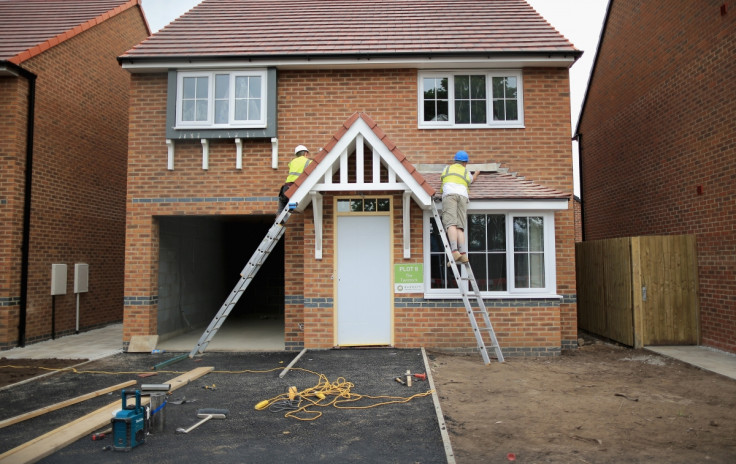House-building in England hits seven-year high, but Shelter brands figures 'not good enough'

Much-needed house-building in England, where prices and rents are rising quickly in some areas because of a shortage of housing supply, is picking up quickly, though it still falls well short of demand. There were 142,890 housing completions in the 12 months to December 2015, a 21% annual increase. New housing starts also rose, though more slowly. There were 143,560 starts, a 6% rise year-on-year.
The data is from the Department of Communities and Local Government (DCLG), which said housing starts are up 91% from their low point in June 2009. Completions, said the DCLG, are now at the highest level since 2008. "We've got the country building again with starts nearly double the low point of 2009 and along with completions hitting a seven-year high," said Brandon Lewis, the housing minister. "However we're not complacent. That's why we've set out the most ambitious housing vision for more than a generation, doubling the housing budget so we can meet our ambition of delivering a million new homes."
Shelter, a housing charity, said the latest completions figure is still 23% below its peak in March 2007. "Any rise in house-building is good news, but not good enough when we're still only building a little over half the homes we need," said Campbell Robb, chief executive of Shelter. "Last week the government's own figures showed that the number of families privately renting, facing instability and rising rents, has increased by more than half over the past five years, as our drastic shortage of affordable homes sees more and more people priced out."
Estimates of the annual new housing need in England vary from 200,000 to 300,000 so despite the robust rise in building, it is still insufficient. The average UK house price rose 6.7% to £288,000 in the year to December 2015, said the ONS. England's rise was quicker, with the average price growing 7.3% to £301,000. The increase was powered by rapid increase in London, the east and south east of England where the housing shortage is most severe.
Private rents in London are rising much faster than wages. The ONS said private rents grew by 3.9% on average in London over the year to December 2015, but London's average weekly earnings for full-time workers were flat between 2014 and 2015. For England as a whole, private rents rose 2.5% over the same period, while pay excluding bonuses increased by 1.9%, squeezing renters' finances.
But house-building is being held back for a number of reasons, including planning law and the affordability and availability of land for development. But the largest constraint is a construction skills shortage, which is driving up the cost of labour and holding up work because key staff are hard to find.
© Copyright IBTimes 2024. All rights reserved.






